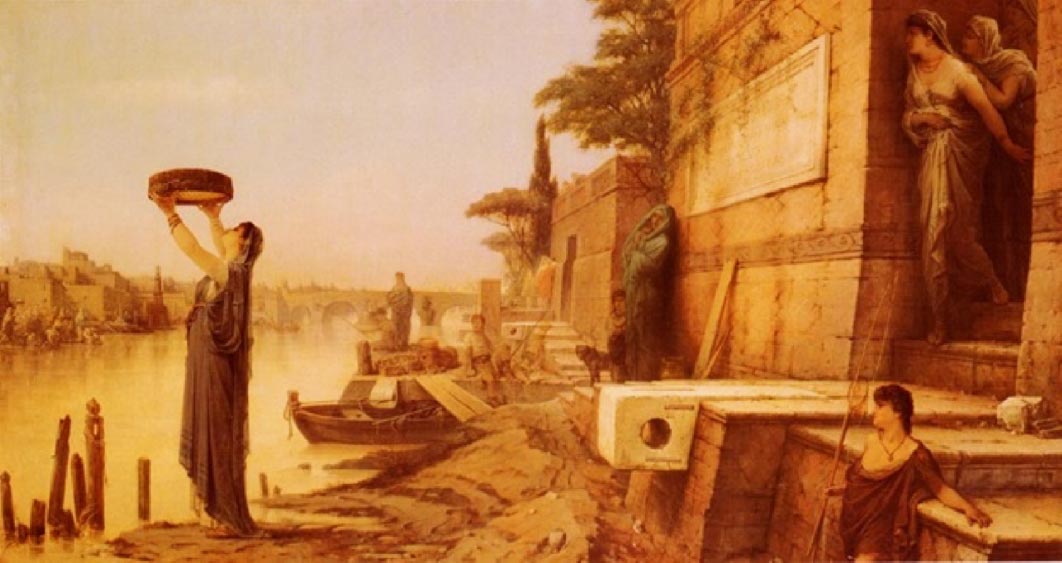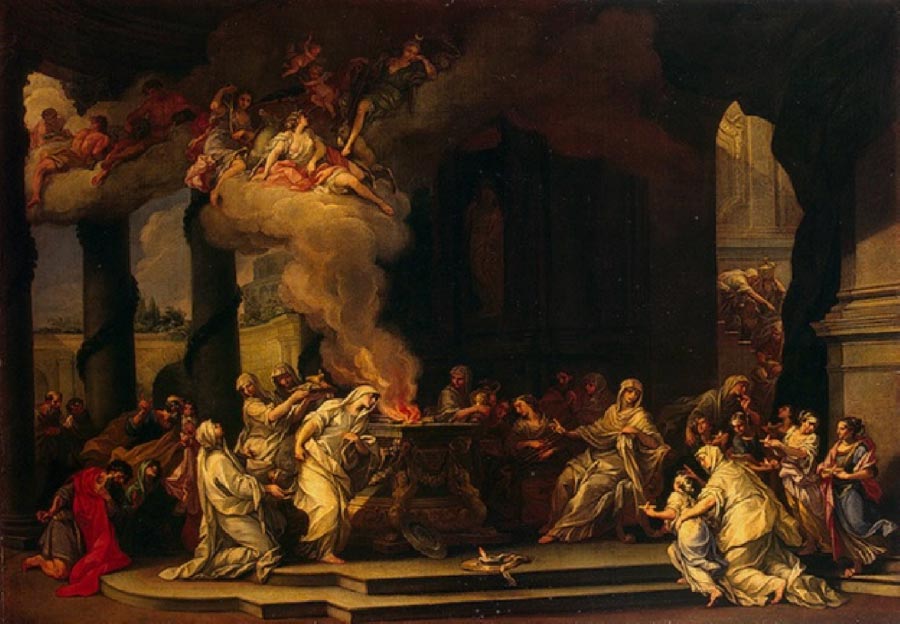
The Precarious Fates of Rome’s Vestal Virgins
The fate of Rome depended upon the chastity of the Vestal virgins and their transgressions could lead to live entombment. In the first century BC, Marcus Licinius Crassus, one of the richest and most powerful Roman citizens, nearly lost his money, reputation and even his life when he was accused of being too intimate with a Vestal virgin named Licinia. It was only when Crassus was brought to trial that his true motives emerged. It appeared that Licinia, his cousin, was the owner of a pleasant villa in the suburbs which Crassus wished to acquire for himself at a low price. It was for this reason that Crassus was courting Licinia. It was this very reason that saved both Crassus and Licinia, as he was promptly acquitted when it became clear that Crassus’ wooing of the Vestal was motivated, not by lust, but by greed. Licinia, who might not have been too impressed with Crassus’ motive, was saved from the fate of being entombed alive in the Campus Sceleratus (Field of Transgression), a Vestal’s punishment for violating her oath of celibacy.

The guardian of the Vesta flame by Louis Hector Leroux (1879) (Public Domain)
The Silent Virgins
The poet Horace (65 - 8 BC) declared that Rome would stand, “as long as the pontifex climbs the Capitoline beside the silent Virgin.” The ‘silent Virgin’ that Horace was referring to was a Vestal virgin, a priestess of Vesta, the Roman goddess of the hearth and home. As the primary role of the Vestal virgins was a public cult as well as an embodiment of the city and citizenry, the well-being of the College of the Vestals was regarded as fundamental to the well-being and security of Rome. Committed to the priestesshood before puberty and sworn to celibacy for a period of 30 years, the Vestals were also put in charge of keeping safe the wills and testaments of the most powerful people in Rome such as Julius Caesar and Mark Antony. Therefore, it was not surprising that the Vestals became a powerful force in the Roman state. When Sulla included the young Julius Caesar in his proscriptions, it was the Vestals who interceded on Caesar's behalf and gained him pardon. In a less practical sphere, the Vestals were even attributed certain magical powers. In book 28 of his Natural History, Pliny the Elder says that “… it is a general belief, that our Vestal virgins have the power, by uttering a certain prayer, to arrest the flight of runaway slaves, and to rivet them to the spot, provided they have not gone beyond the precincts of the city.”

A group of Vestal virgins by José Rico Cejudo (circa 1888) (Public Domain)
The Vestal virgins were the women of the city. Beloved and closely watched by the people as well as receiving invitations to the best and most important events in Rome, these ladies had premium seats at all the games, sitting close to the emperor and were granted great privilege and prestige. However, like other famous and much-watched women throughout history, the Vestals also had their brushes with scandals.
Living Spectacles
Historians Livy, Plutarch and Aulus Gellius attribute the creation of the Vestals as a state-supported priestesshood to king Numa Pompilius, who reigned circa 717–673 BC. Numa was very involved in the beginning of the college from the founding of the Temple of Vesta, appointing its first two priestesses and assigning them salaries from the public treasury, to appointing the Pontifex Maximus to watch over the Vestals. Numa was even said to have taken the first Vestal away from her parents himself in a ceremony called captio (capture).
- The Rape of Lucretia: A History of the Ancient Wife Who Changed the Destiny of Rome
- Vestal Virgins: Powerful Priestesses of Rome’s Sacred Flame
- Throwing Virgins into the Sea and Other Ways to Appease the Gods: The Ancient Reasons behind Virgin Sacrifice
The captio ceremony, the very first ceremony that a young Vestal would have experienced in her role, designated a Vestal as a spectacle. The Vestals’ daily tasks, most of which were done openly at their temple at the very center of the city, such as the maintenance of the sacred fire of Vesta which was never allowed to go out, the collection of water from a sacred spring, preparation of food used in rituals and the care for sacred objects in the temple's sanctuary, also confirm the Vestals functions as spectacles. Vestals accused and convicted of transgressing their status and role in Roman society through the allegation of violating their virginity, were entombed alive in an elaborate ritual - another spectacle for the Roman public.





